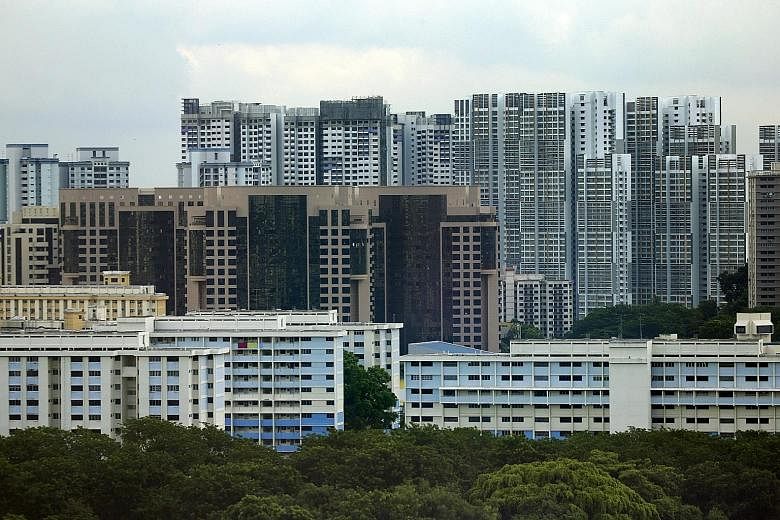The property market is adjusting in the right direction but it is too early to ease the cooling measures, the Monetary Authority of Singapore (MAS) said yesterday.
MAS managing director Ravi Menon said that while it eased limits on car financing in May, as the aim of curbing inflationary pressures had been achieved, housing is quite different.
He told a briefing that the MAS is "quite happy" with the way the property sector has been evolving. "It's a gradual softening of prices, unwinding some of the sharp run-up that you saw earlier. The household debt situation has improved and the debt servicing ratio for new loans is very good. Banks' non-performing loans for property are very low. So we don't have concerns for the property market as such. I think things are playing out in a good manner."
But he said it was too early to lift the cooling measures as "we want to make sure the gains we have made painstakingly over the last one to two years are entrenched, that we are on a sustainable path for the property market and that the household balance sheets become stronger still to withstand (interest rate and income) shocks".
The risk of a renewed surge in property prices "is not trivial", given that interest rates are low and likely to remain low for some time, and as global investors continue to search for yield, said Mr Menon.
Since the property cooling measures were introduced, household balance sheets have strengthened, with annual growth in household debt moderating to 1.7 per cent in the first quarter, down from about 8 per cent over the last five years.
The contribution of accommodation costs to inflation has also come down significantly, Mr Menon said.
But property prices have fallen only a total of 9.4 per cent from their peak in the third quarter of 2013, he added. They increased 60 per cent from 2009 to 2013, when nominal incomes rose only 30 per cent over the same period.
Yet, while the adjustment seems modest purely in terms of price, the effective price correction has been greater considering wages have been rising from the second half of 2013, noted UOB economist Francis Tan. For example, nominal wages rose 4 per cent last year and 4.9 per cent in 2014, excluding employer Central Provident Fund contributions.
Cushman & Wakefield research director Christine Li agreed, however, that the risk of a technical rebound of property prices is higher compared with several quarters ago. With a market trough in sight, pent-up demand accumulated over the past three years and a decline in mortgage rates post-Brexit, more buyers may return to the sidelines, she said.


